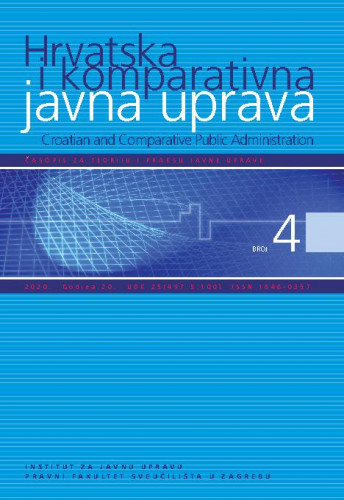After the democratization and independence of Slovenia, the Constitutional Court has generated the paradigm reform in the Slovenian constitutional system by protecting individual rights against the heritage of the former system. The constitutional judges are not blank slates, but individuals embedded in their private and professional environments. In the past three decades, the Court has delivered several seminal decisions concerning the protection of the rule of law, human rights, and constitutional democracy. What motivates constitutional judges to protect individual rights in some cases and show preference for the preservation of authority and stability of the existing legal system in others? The article is based on the empirical research measuring the presence of judicial ideology at the Constitutional Court of Slovenia in three mandates (1993–1997, 2002–2006, 2011–2016). The methodological and theoretical model aims to measure economic, social, and authoritarian dimensions of judicial ideology (three-fold judicial ideology model). The research group has analysed the decisions and separate opinions of the Constitutional Court from selected periods based on hypotheses provided by the model. This article intends to present and analyse the research results concerning the authoritarian dimension of judicial ideology. More specifically, it examines the level of authoritarianism of the Slovenian Constitutional Court in its judicial decision-making during the three mentioned mandates. Through the obtained empirical results, the paper seeks to strengthen fair, impartial, and independent functioning of the Slovenian Constitutional Court and its respective judges.; U razdoblju nakon demokratizacije i neovisnosti, Ustavni sud proveo je bitnu promjenu slovenskog ustavnog sustava prema zaštiti pojedinačnih prava, naspram naslijeđa bivšeg sustava. Ustavni suci nisu prazne ploče nego osobe koje žive u svojoj privatnoj i profesionalnoj okolini. U protekla tri desetljeća Sud je donio nekoliko važnih odluka koje se odnose na vladavinu prava, ljudska prava i ustavnu demokraciju. Što je potaklo ustavne suce da u nekim slučajevima zaštite pojedinačna prava, a u drugima preferiraju zaštitu vlasti i stabilnost postojećeg pravnog sustava? Rad se temelji na empirijskom mjerenju sudske ideologije u tri mandata (1993.–1997., 2002.–2006., 2011.–2016.). Metodološki i teorijski model mjeri ekonomsku, socijalnu i autoritarnu dimenziju sudske ideologije (trokomponentni model ideologije). Istraživačka skupina je analizirala odluke i izdvojena mišljenja iz odabranih razdoblja prema odrednicama tog modela. Svrha ovog rada je prezentirati i analizirati dobivene rezultate koji se odnose na autoritarnu dimenziju sudske ideologije, odnosno utvrditi koliko je autoritaran bio slovenski Ustavni sud u donošenju odluka u tri navedena mandata. Kroz to se želi ojačati pošteno, nepristrano i neovisno djelovanje slovenskog Ustavnog suda i njegovih pojedinačnih sudaca.
Sažetak

 Hrvatska i komparativna javna uprava : časopis za teoriju i praksu javne uprave = Croatian and comparative public administration : [a journal for theory and practice of public administration] 20, 4(2020) / glavni i odgovorni urednik, editor-in-chief Ivan Koprić.
Hrvatska i komparativna javna uprava : časopis za teoriju i praksu javne uprave = Croatian and comparative public administration : [a journal for theory and practice of public administration] 20, 4(2020) / glavni i odgovorni urednik, editor-in-chief Ivan Koprić.